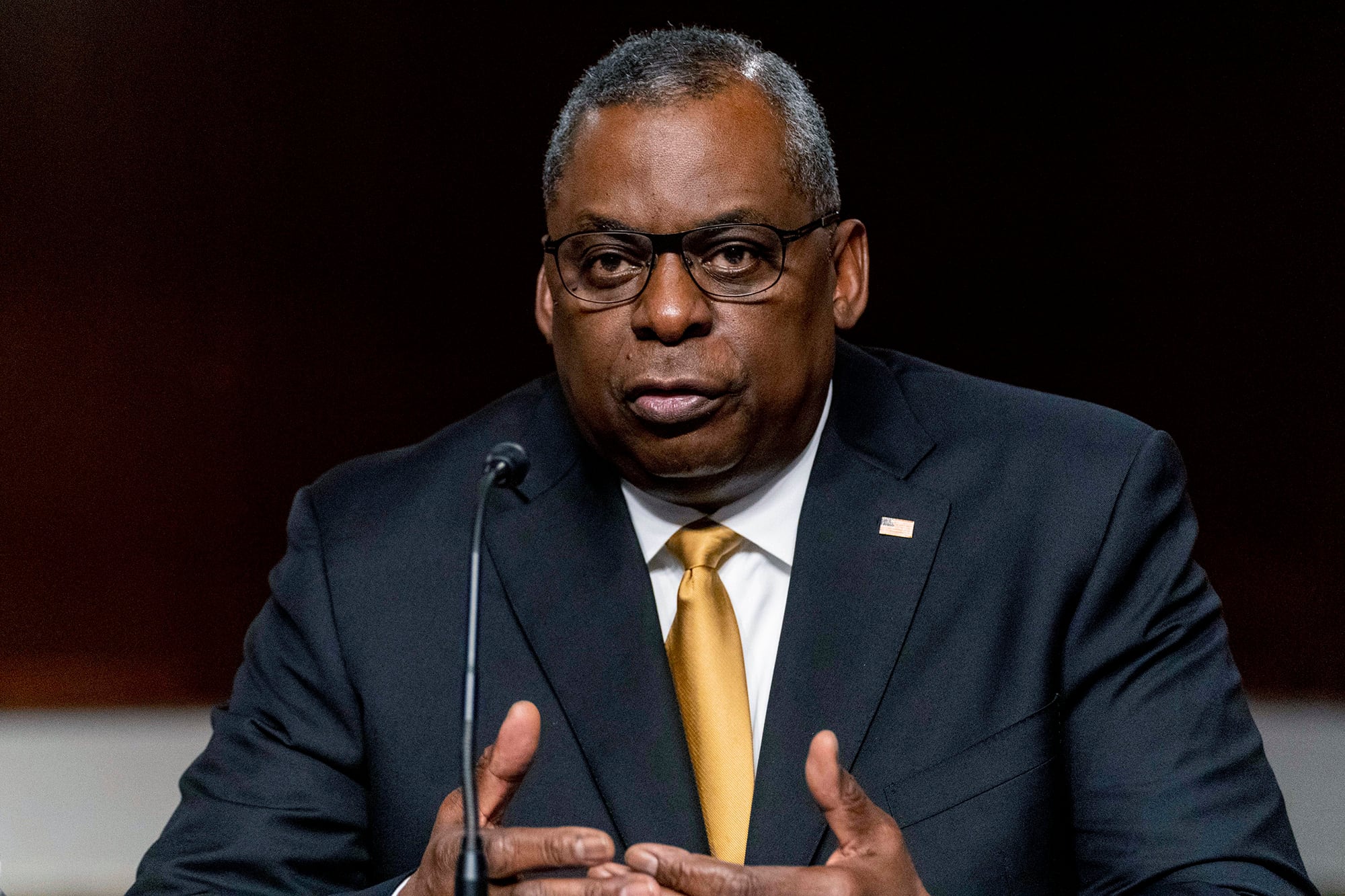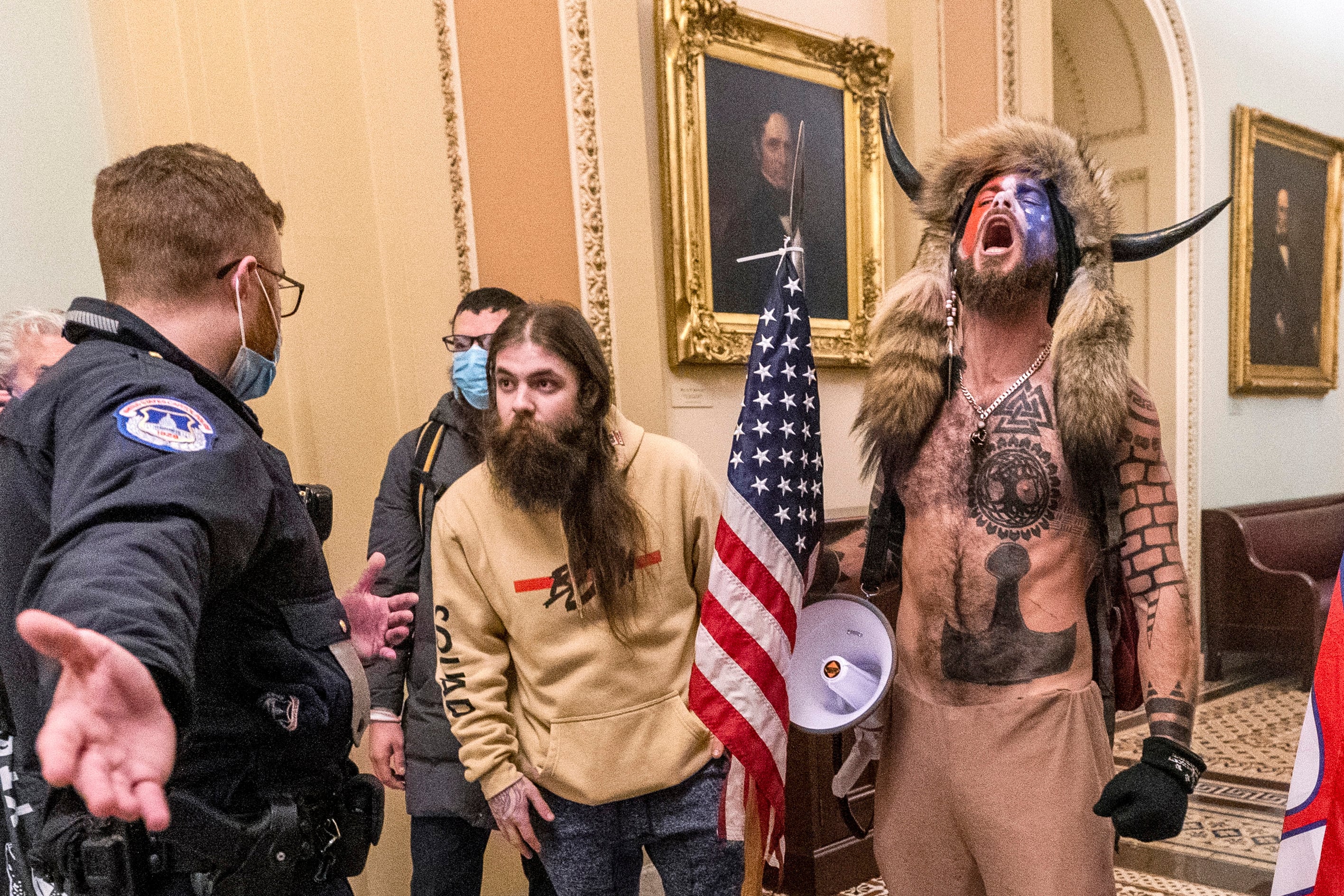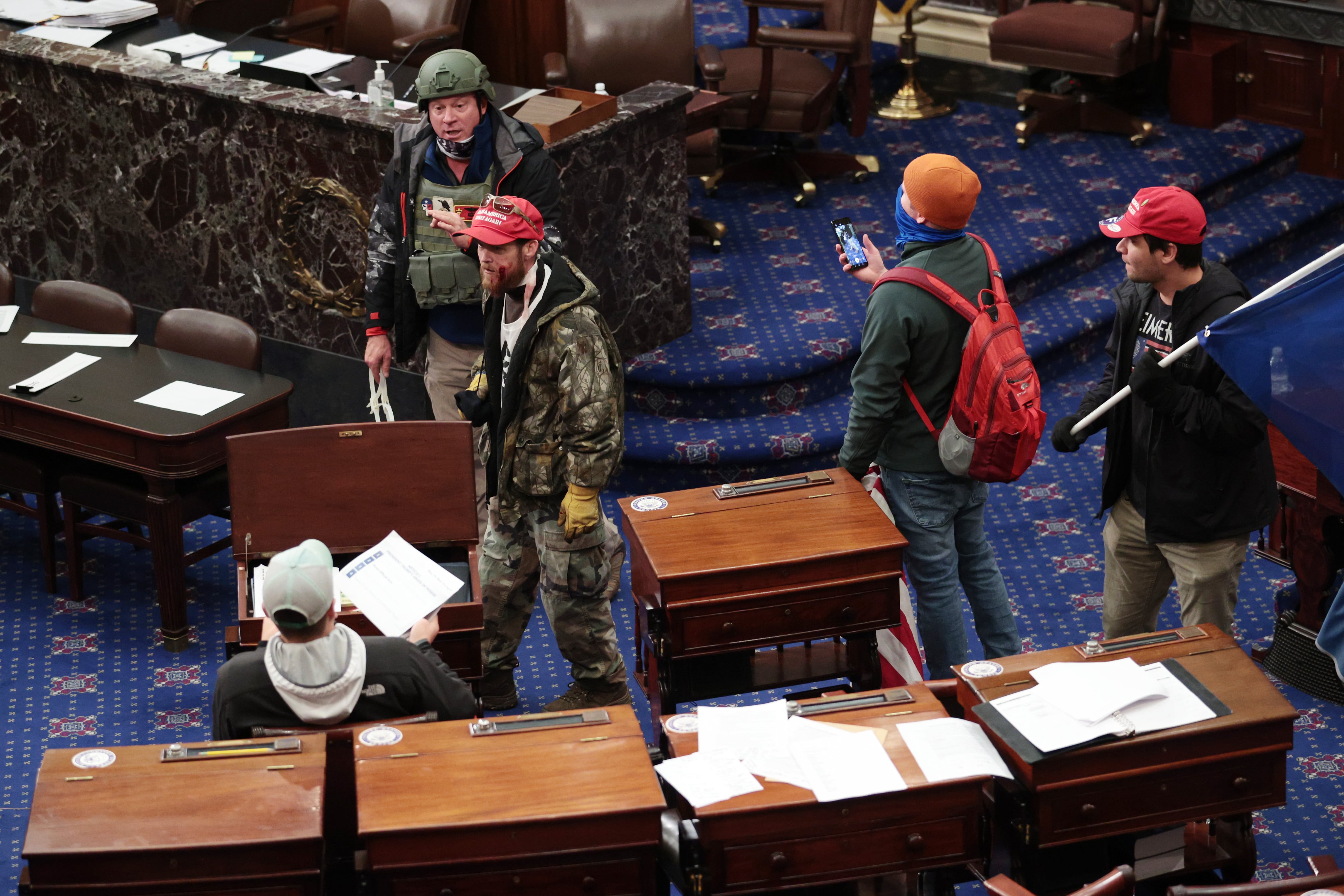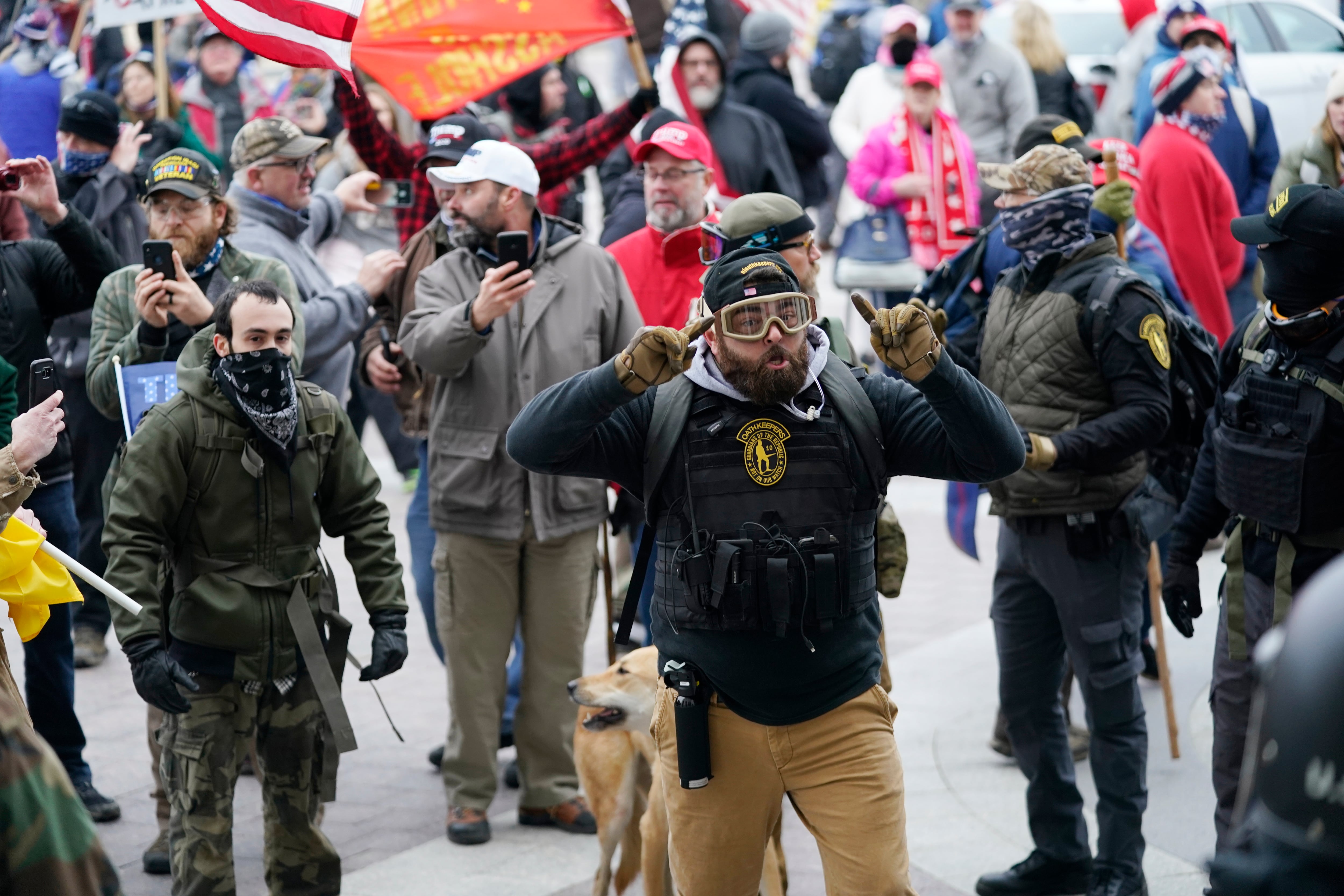Membership in extremist groups is still not prohibited by the Defense Department, but an updated instruction released Monday seeks to prohibit pretty much everything that one might do in association with an extremist group.
The project of defining extremism for the purpose of punishing those who engage it is like “threading a very fine needle, when we’re engaging in prohibiting conduct that may be protected by the First Amendment,” a defense official told reporters Monday, as the Countering Extremism Working group released its final report.
“We wanted to push forward with the same standard that we had in our previous iterations of this policy, which is that active participation,” an official said. “So it was really important to us that we preserve First Amendment rights to the extent that we could, and that we focus on an individual’s actions, regardless of whether they did that on their own or as part of an organization.”
Instead, the new policy expands the previous definition of prohibited activity, for the first time explicitly including online interactions that might promote terrorism or the overthrow of the U.S. government, as well as attending rallies, fundraising or organizing in support of those ideologies.
In practice, online activity could already be prosecuted by the services. In 2019, the Army began investigating Maj. Jeff Poole, an Army Reserve infantry officer at Fort Benning, Georgia, with a prolific Reddit presence advocating for violent anti-government and anti-military insurrection.
RELATED

A board of inquiry voted to hand him an other-than-honorable discharge earlier this year.
Now, commanders have a much more detailed list of prohibited online activity, down to likes and retweets, rather than just going as far as to post an anti-government manifesto.
“It would be very difficult to really be any form of an active participant or member in any organization that was espousing extremist views or acts,” a defense official said.
As the report’s original July due date came and went, Pentagon officials have hinted that the new definition likely wouldn’t include membership or any list of prohibited groups.
RELATED

Rather than calling out Oath Keepers, III-Percenters or Proud Boys ― then inevitably facing questions about Antifa or Black Lives Matter ― the Pentagon chose to prohibit the promotion of certain kinds of messaging.
“We were very conscious of not focusing on any particular ideology, or any political organization, focusing exclusively on actions,” an official said.
The instruction also lays out a two-part process for verifying the activity. Step one is the report, but step two involves leadership speaking with the service member, to see whether liking an extremist tweet, for example, was intentional.
“... it’s going to be very case-specific, and will be up to the individual’s chain of command, and his or her senior leadership in the unit, to have that discussion, that determination, whether this was a very deliberate act of active participation in extremist activities, or whether it was maybe a mistake,” Pentagon spokesman John Kirby said Monday.
Likewise, it will be up to the chain of command to decide how to respond. Liking a tweet does not equal a court-martial or an involuntary discharge. It could be a counseling, or a non-judicial punishment.
“And we ... have full confidence in our commanders’ ability, when something’s reported to them, to treat it appropriately ... and to look into it in the manner that they see fit,” Kirby said.
The working group also updated screening procedures for recruits, as well as the transition checklist for troops preparing to separate from service, to ensure they are aware that extremist groups might target them for recruitment.
RELATED

Recruits won’t be subject to any sort of social media screening before signing a contract, a defense official said, but recruiters will ask some questions about their activities or affiliations.
Some of these are covered during the application process for a security clearance, the official said, but the new policy will ask those questions during the recruiting process.
And finally, DoD will commission a study to gather more data on the prevalence of extremism in the services, with a final report “anticipated” in June.
Some of this work has already begun, as DoD earlier this year began piloting voluntary extremism questions on command climate surveys.
As part of the working group’s study, they pulled data from the services and found around 100 extremism investigations in 2021, “which represents, we believe, an increase,” the official said.
“Now, whether that is an increase because our data fidelity has gotten better, or whether it’s an increase overall, is something that we’ll have to look at closely in years to come, as ... data fidelity improves,” the official added. “But certainly, looking at case rates of domestic violent extremism across the country as a whole could be a precursor to what we may be experiencing or could experience in the military.”
The second part of the working group’s mandate included recommendations for further action. Those include developing training and education to support the new extremism guidelines, updating any similar policies governing DoD contractors and modernizing existing insider threat programs.
The Pentagon has also toyed with the idea of creating an article under the Uniform Code of Military Justice to address extremism, as requested in the 2022 budget submission.
While other misconduct regulations can currently cover extremist activity, creating an extremism specification could help the services better track charges and adjudications for it.
Kirby could not say Monday whether that effort could get underway without the requested funding from Congress.
Meghann Myers is the Pentagon bureau chief at Military Times. She covers operations, policy, personnel, leadership and other issues affecting service members.




